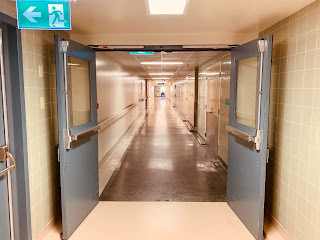Did Halting In-Person Visits During Covid-19 Affect Knee Replacement Outcomes at Hospital for Special Surgery?
At Hospital for Special Surgery (HSS), we set out to evaluate outcomes for recent knee replacement patients when nonessential in-person doctor visits and physical therapy were halted in March 2020 due to the pandemic. Our thought-provoking study found that the shutdown did not lead to a higher complication rate, nor did it affect patient-reported outcomes after surgery. Our study appeared online ahead of print in the Archives of Orthopaedic and Trauma Surgery.
Elective, nonessential orthopedic care, including in-person office visits and physical therapy, was halted on March 16, 2020 at the onset of the COVID-19 surge in New York City. At that time, HSS rapidly expanded its telehealth and tele-rehabilitation services so patients could receive their care remotely, including post-operative visits and physical therapy.
Our study aimed to assess complications during the first 90 days following surgery and patient-reported outcomes within one year of surgery. We identified 624 patients who underwent a total knee replacement for osteoarthritis and were discharged to their home between January 1, 2020 and March 15, 2020. Study patients were compared to a control group of 558 patients with equivalent selection criteria who underwent surgery between January 1, 2019 and March 15, 2019. All procedures were performed at HSS.
Study patients were prescribed significantly fewer in-person visits and PT sessions and utilized telehealth more frequently than those in the control group. Significantly more study patients received post-discharge care entirely virtually.
We found that the rate of 90-day complications was lower among study patients compared to the control group (3.5% vs. 5.9%). Patient-reported outcomes at six weeks, three months and one year, which included questions on knee symptoms, pain and function, were also similar between both groups.
The findings are noteworthy, considering increasing interest in “fast-track” regimens following surgery. These protocols emphasize a transition of postoperative care to outpatient and in-home settings to lower costs, reduce complications, expedite recovery and conserve hospital resources.
In our study, reduced access to in-person care and an increased reliance on remote patient monitoring and telehealth had no major consequences on clinical outcomes for knee replacement patients. It may be appropriate to rethink the importance of in-person follow-up, which may not always be needed. Additional research involving more patients and longer-term outcomes would be essential to confirm our findings.



Comments
Post a Comment